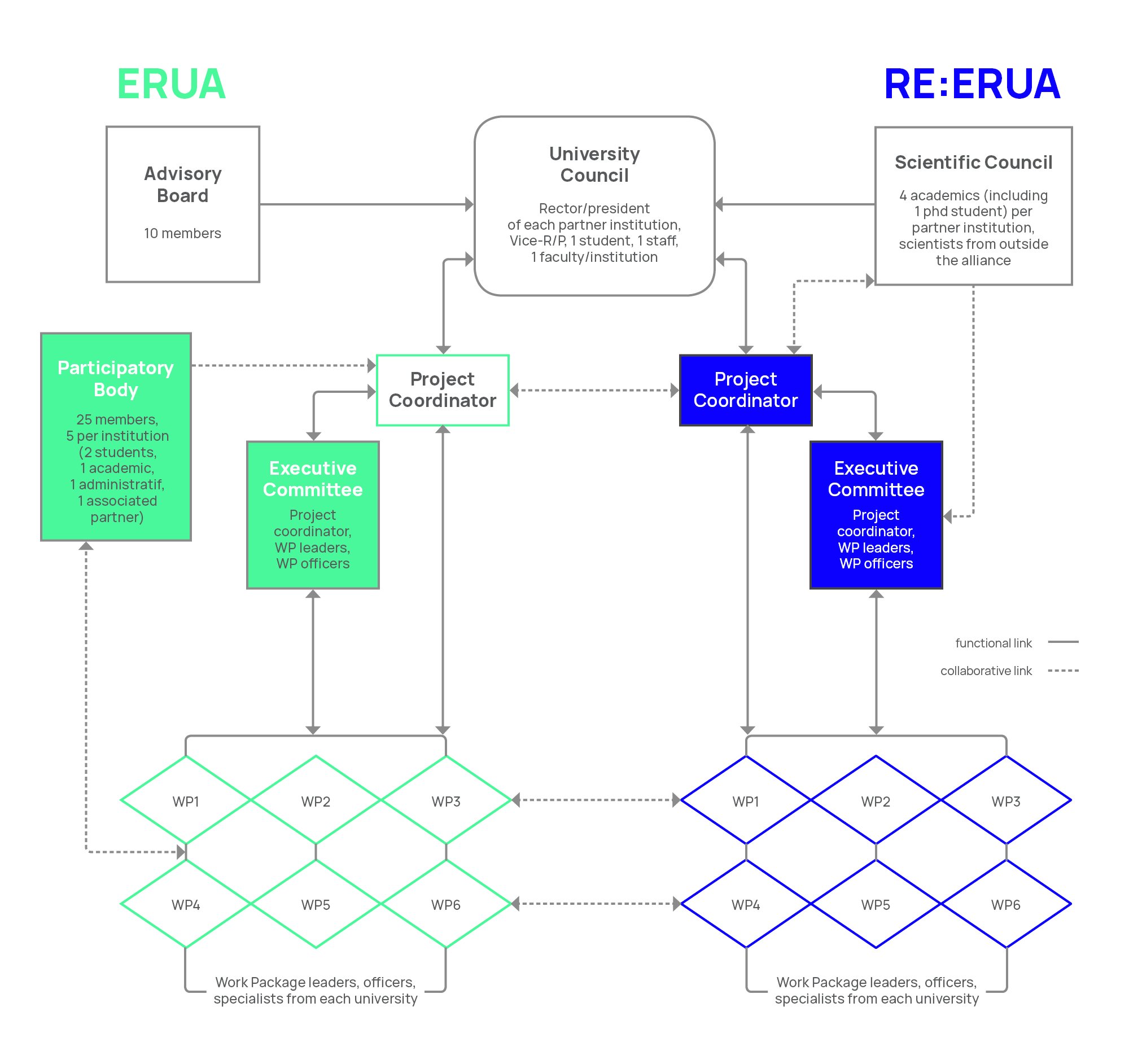As a European University Initiative we offer students a rich and diverse environment with a shared pedagogical approach focused on project-based learning, societal challenges and critical thinking. We develop personalised learning pathways in a multilingual, multicultural environment. We offer the framework and structures to allow students from different backgrounds to become part of a shared European experience.
We pursue excellence in research by promoting free thinking, a bottom-up approach and open science. We cover most disciplinary fields with a particularly strong profile in the Humanities, Social Sciences and Arts. This enables us to develop original interdisciplinary approaches and new answers and solutions to contemporary problems and challenges.
Our educational programmes and research projects are geared towards societal impact. To achieve this we work in close collaboration with a wide range of actors. As a European University we combine local engagement and global vision.
As Reform Universities we continuously question and transform our institutions. We foster the critical function of the modern university by reflecting upon, assessing and advancing alternatives to current models. We do so by drawing upon the diverse experiences and backgrounds of the university community, which embody the diversity of the society around us, and encourage and allow all to participate in shaping the future of the university.
We share a vision of universities as creative spaces, an awareness of the power of experimental approaches, and an understanding of the promises of diversity. To address the challenges and problems of today, we want to bring together academics from all of Europe and students from the top and bottom socio-economic deciles, from rural and urban settings, from local and global backgrounds. Together we aim to shape a more just, open and inclusive society.
Since we question and transform our institutions, we have continued the discussion on ERUA’s identity in the last years and explored the concept of reform in more detail:
Reform is at the heart of ERUA, both in name and in spirit, and grounded on the following principles:
As an inclusive alliance, ERUA distributes responsibilities among all partners, allowing them to participate on an equal footing to the implementation of this common project.
The alliance is governed by two main decision-making bodies: the University Council and the Executive Committee.
In addition, a group of external experts, called the Advisory Board, has been established to provide independent strategic advice from experts in relevant fields. It is in charge of ensuring that activities can benefit from the best possible conditions and are run according to the most efficient and effective utilization of educational, financial and technical resources.
Finally, in order to ensure community engagement in the alliance’s development, ERUA has set up a Participatory Body. It is an experimental democratic body that aims to foster the expression and the defence of the general interest of the ERUA community, through the evaluation of the relevance of the actions undertaken and in relation to the daily realities of the beneficiaries. It thus positions itself as an intermediary between the governance bodies of the Alliance and the university community.

| Cookie | Duration | Description |
|---|---|---|
| cookielawinfo-checkbox-analytics | 11 months | This cookie is set by GDPR Cookie Consent plugin. The cookie is used to store the user consent for the cookies in the category "Analytics". |
| cookielawinfo-checkbox-functional | 11 months | The cookie is set by GDPR cookie consent to record the user consent for the cookies in the category "Functional". |
| cookielawinfo-checkbox-necessary | 11 months | This cookie is set by GDPR Cookie Consent plugin. The cookies is used to store the user consent for the cookies in the category "Necessary". |
| cookielawinfo-checkbox-others | 11 months | This cookie is set by GDPR Cookie Consent plugin. The cookie is used to store the user consent for the cookies in the category "Other. |
| cookielawinfo-checkbox-performance | 11 months | This cookie is set by GDPR Cookie Consent plugin. The cookie is used to store the user consent for the cookies in the category "Performance". |
| viewed_cookie_policy | 11 months | The cookie is set by the GDPR Cookie Consent plugin and is used to store whether or not user has consented to the use of cookies. It does not store any personal data. |